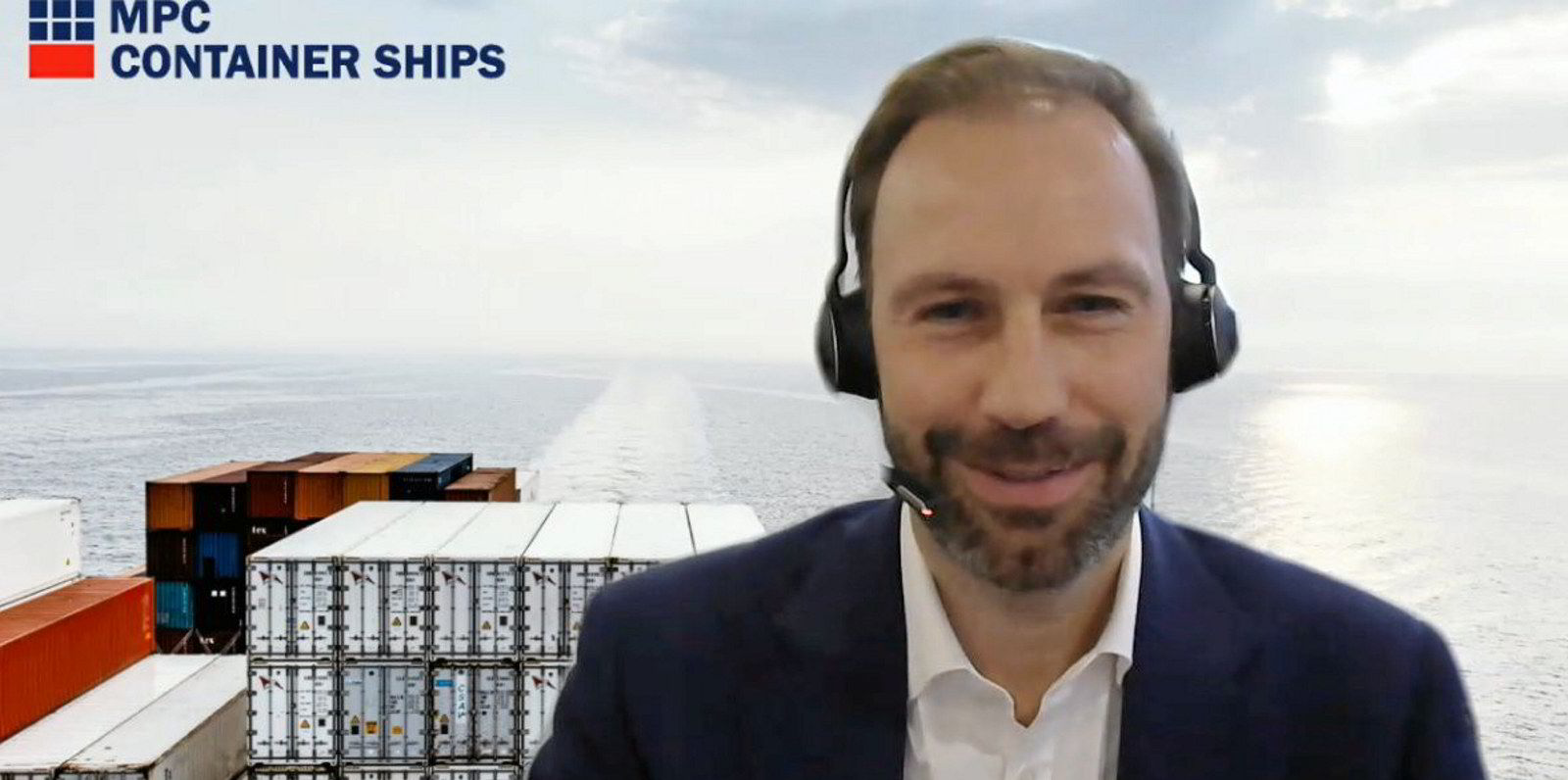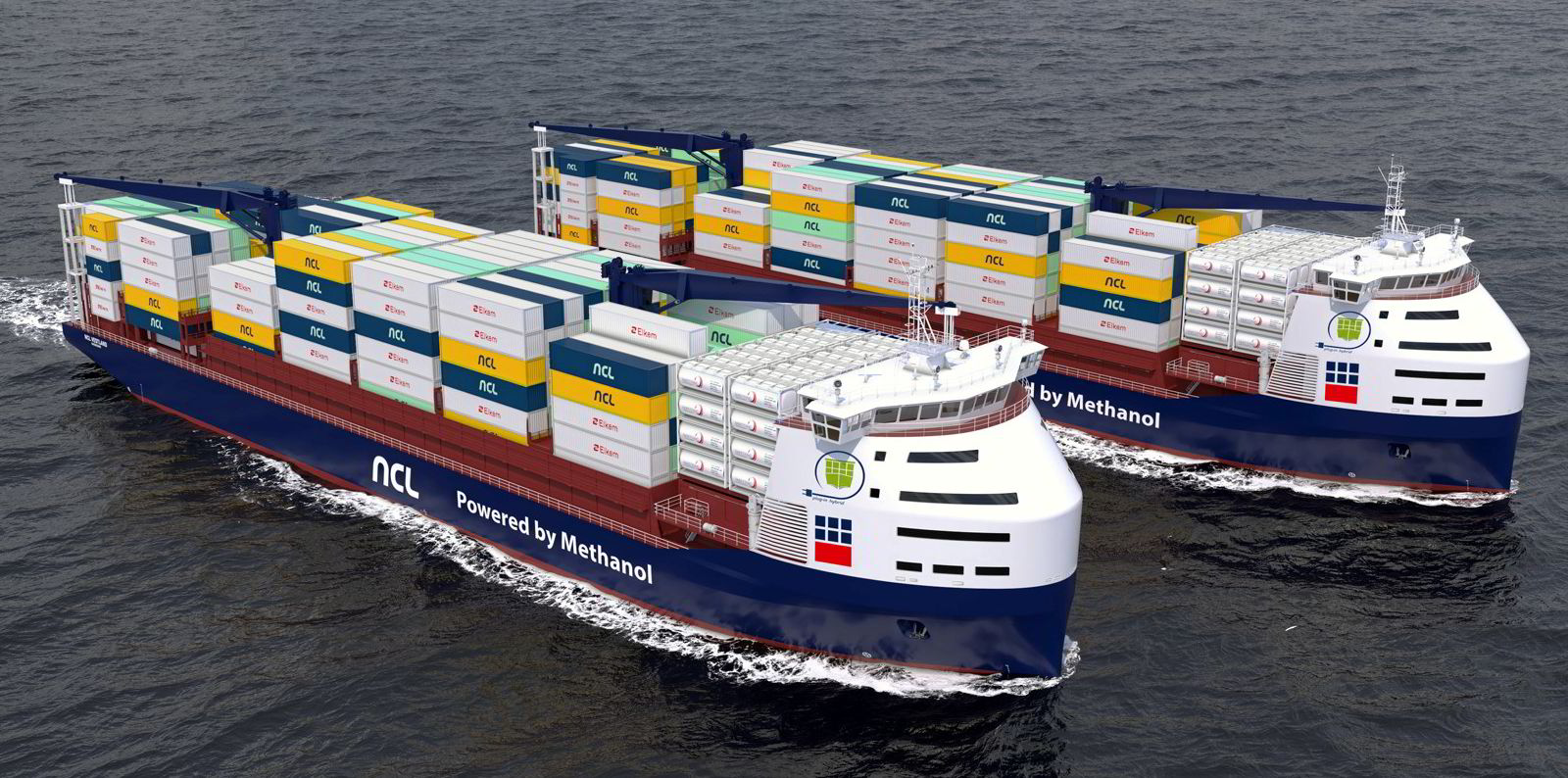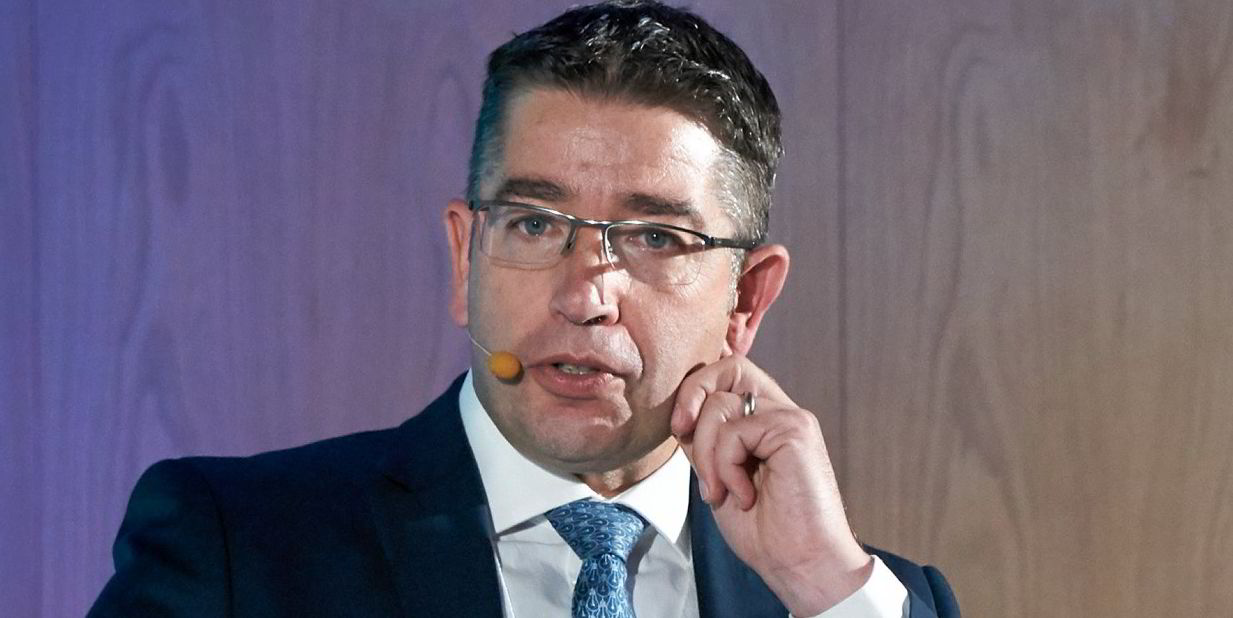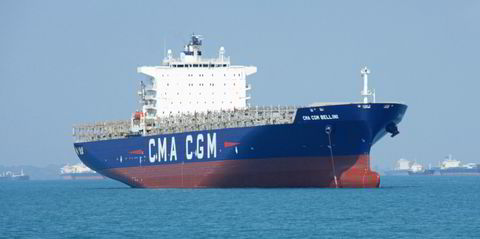MPC Container Ships (MPCC) is in talks with liner operators that could lead to more newbuilding projects for methanol-propelled container ships.
“This is going to be the trend,” chief executive Constantin Baack told TradeWinds after the company unveiled an order for a brace of 1,300-teu dual-fuel vessels to be built in China.
The Oslo-listed company has opted for methanol propulsion as it was a proven technology, he said.
“The design of vessels is no longer the big issue anymore, at least if you look at methanol,” Baack said.
“It will still need a few years for engine manufacturers to have ammonia-ready main engines available.”
“In methanol it’s different, we will have an engine that can run from day one.”
The order reflects the appetite of container shippers in the regional trades for immediate carbon-neutral solutions, said Baack.
His company, which is the largest global feeder tonnage provider, sees the regional container trades as ripe for decarbonisation.
MPCC’s newbuildings will trade along the Norwegian west coast and turn around in Hamburg and Rotterdam.
These trades are deemed the easiest place to start decarbonisation of the shipping industry, requiring limited infrastructure investment and being highly predictable.
“It is a special and niche trade, but it is in our view the trade where we will see first of all the decarbonisation of the industry in a more structured way,” said Baack.
“You have very tangible and visible cargoes streams that have been there that will be there, so people are more willing to commit, particularly if you have more green cargo owners.”
“That’s why it’s easier to do feeder container ships on these regional trades.”

At $39m per vessel, the feeder vessels are not cheap. They are scheduled for delivery from Taizhou Sanfu Ship Engineering before 2024.
But the ships have contracted cash flows from a 15-year time charter with North Sea Container Line (NCL) at an initial rate of €16,300 ($17,000) per day, before an index-linked adjustment lifts the average up to as much as €18,300 per day.
The vessels will benefit from long-term contracts of affreightment from Norwegian industrial group Elkem, which owns 40% of NCL.
Separately, the Norwegian companies are understood to have secured letters of intent with fuel providers.
Other deals in pipeline
Managers at MPCC’s head office in Hamburg believe there is potential to line up similar contracts with other players in regional trades.
“We are in discussion with other operators on similar projects. We really feel that in feeder container ships there’s already a lot you can do today,” he said.
The move marks a further shift of direction for MPCC, which has mostly grown in recent years on buying secondhand container ships.
But the boom in the charter market has left the company with “a lot of cash flow visibility and substantial revenues, so it’s only natural to move into these kinds of things”, the manager said.
The newbuildings will be 90.1% owned by MPCC with the remainder owned by Topeka MPC Maritime, a joint venture between MPC Capital and Wilhelmsen Group-controlled Topeka Holding.






